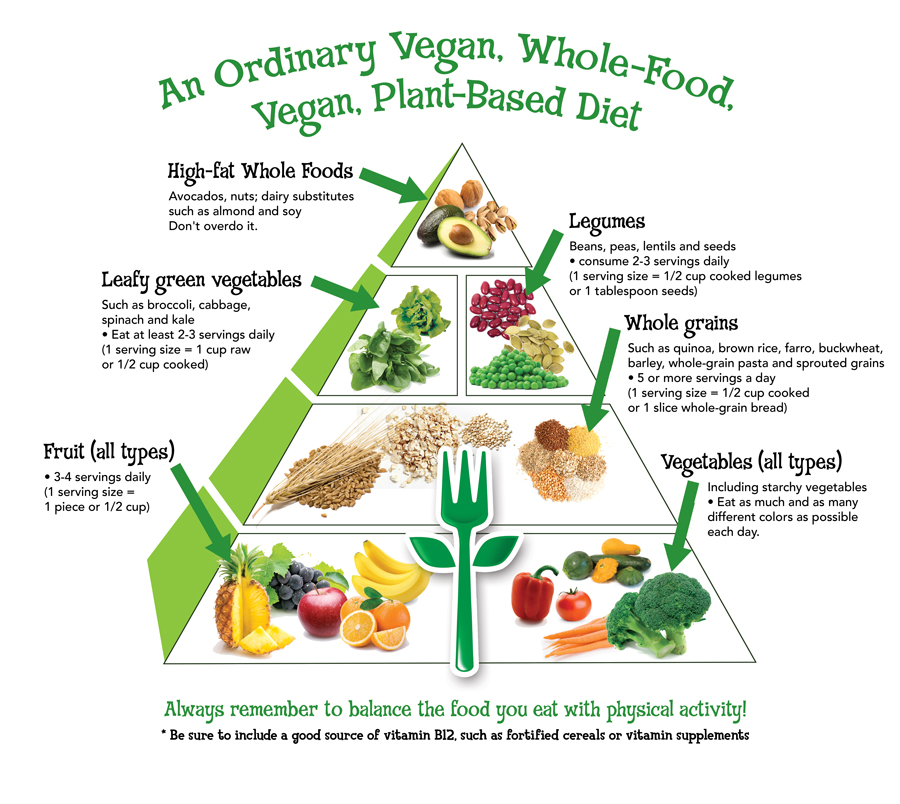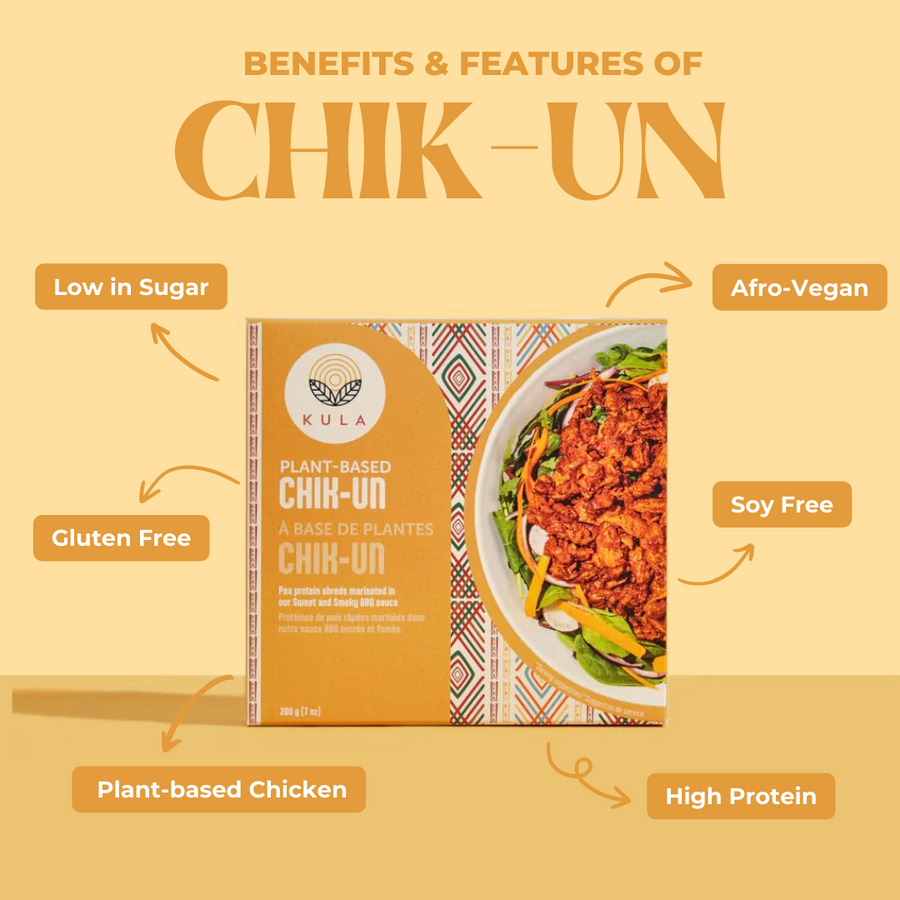Best Brands for Gluten Free BBQ Sauce in Portland
Best Brands for Gluten Free BBQ Sauce in Portland
Blog Article
Everything About Healthy And Balanced Food: Advantages of Checking Out Plant Based Alternatives
The conversation bordering plant-based diets has actually gained substantial attention in current years. Lots of individuals are exploring the possible health advantages, dietary benefits, and environmental impacts associated with these dietary options. As people become much more knowledgeable about their food's impact on health and sustainability, concerns develop regarding the functionalities of adopting such a lifestyle. What particular modifications can one expect, and how might these options reshape not just individual health but additionally the world's future?
Understanding Plant-Based Diet Regimens
Several people link plant-based diet plans mostly with vegetarianism or veganism, these diet plans can incorporate a broad array of eating patterns that focus on whole, minimally refined plant foods. Such diet regimens commonly include fruits, vegetables, entire grains, vegetables, seeds, and nuts, while limiting or removing pet products. This versatility permits individuals to tailor their nutritional choices according to nutritional requirements and individual preferences. Some may embrace a largely plant-based diet regimen while still sometimes consuming meat or milk, typically described as a flexitarian approach. The focus stays on including even more plant foods, which can lead to a diverse variety of tastes and meals. Comprehending these numerous analyses of plant-based consuming is important for valuing its access and allure in modern food culture.
Health Advantages of Plant-Based Foods
The health and wellness advantages of plant-based foods are considerable, using a nutrient thickness benefit that sustains total well-being. Research indicates that these foods can improve heart health and play an important duty in reliable weight monitoring. By including extra plant-based alternatives, people might improve their dietary options and promote long-term health.
Nutrient Density Benefit
Nutrient thickness plays a necessary function in the health and wellness benefits of plant-based foods, making them a compelling selection for those looking for a well balanced diet plan. Plant-based foods, such as fruits, vegetables, legumes, nuts, and entire grains, are usually abundant in necessary vitamins, minerals, and antioxidants while being lower in calories. This high nutrient thickness permits individuals to take in less calories while still meeting their nutritional needs. In addition, these foods are loaded with dietary fiber, promoting digestion health and aiding in weight monitoring. By integrating nutrient-dense plant-based options, customers can improve their overall health and wellness, sustain their body immune systems, and decrease the threat of persistent diseases. Inevitably, the nutrient density of plant-based foods underscores their relevance in a health-conscious way of life.
Heart Health Enhancement

Weight Monitoring Assistance
In enhancement to advertising heart wellness, a plant-based diet plan can substantially aid in weight management. This nutritional strategy emphasizes entire foods such as fruits, vegetables, vegetables, nuts, and whole grains, which are typically reduced in calories and greater in fiber contrasted to animal-based items. The high fiber web content aids increase satiation, minimizing total calorie consumption. Furthermore, plant-based diet plans are commonly rich in crucial nutrients while reduced in unhealthy fats, making it less complicated to maintain a healthy and balanced weight. Gluten Free BBQ Sauce. Study shows that people who adopt a plant-based lifestyle have a tendency to have reduced body mass indexes (BMIs) and experience more effective fat burning compared to those that take in meat-heavy diet plans. As a result, accepting plant-based choices is a tactical choice for effective weight monitoring
Nutritional Worth of Plant-Based Ingredients
Plant-based ingredients are rich in necessary nutrients, using a diverse range of vitamins, minerals, and anti-oxidants that add to general wellness. A contrast of healthy protein resources reveals that while animal products are usually watched as premium, numerous plant-based alternatives supply ample healthy protein and various other advantageous substances. Recognizing the nutritional value of these ingredients can aid individuals make educated dietary choices.
Vital Nutrients in Plants
Nutrient-rich ingredients discovered in plants offer a diverse array of vital vitamins and minerals that add significantly to overall health and wellness. These active ingredients are rich in vitamins A, C, and K, which sustain immune feature, vision, and blood clot, specifically. Furthermore, plants supply vital minerals such as calcium, magnesium, and potassium, essential for heart wellness, muscular tissue function, and bone stamina. The visibility of fiber in plant-based foods help food digestion and advertises a healthy digestive click here to read tract microbiome. Antioxidants, found abundantly in vegetables and fruits, assistance fight oxidative stress and anxiety and reduce swelling. Moreover, lots of plant foods are reduced in calories yet high in nutrients, making them an excellent option for those seeking to keep a healthy and balanced weight while ensuring perfect nutrient consumption.
Comparing Protein Sources
Healthy protein resources differ significantly in their nutritional accounts, with plant-based active ingredients using special advantages. Unlike animal healthy proteins, which commonly consist of saturated fats and cholesterol, plant proteins often tend to be reduced in these unhealthy components. Legumes, nuts, seeds, and entire grains are rich in important amino acids, fiber, vitamins, and minerals. Lentils give high protein web content together with significant iron and folate, while quinoa is a full protein, supplying all nine essential amino acids. In addition, plant-based proteins are usually gone along with by anti-oxidants and phytochemicals that support total health and wellness. The shift to plant-based protein resources not discover this only boosts nutritional consumption however additionally lines up with lasting dietary methods, reducing ecological impact and promoting lasting health advantages.
Ecological Effect of Plant-Based Consuming
As awareness of climate adjustment grows, lots of people are exploring sustainable nutritional choices that can considerably lessen their environmental impact. Plant-based consuming has become a significant factor to lowering greenhouse gas discharges, which are largely associated with livestock production. The growing of fruits, grains, vegetables, and veggies commonly requires fewer resources, such as water and land, compared to animal farming. Furthermore, plant-based diet regimens can bring about decreased deforestation, as less land is needed for grazing livestock or growing animal feed. By moving towards plant-based choices, customers can sustain biodiversity and advertise healthier environments. On the whole, welcoming plant-based consuming not just advantages individual wellness yet additionally stands for a crucial step toward environmental sustainability and preservation efforts.
Conquering Common Misconceptions
While many individuals acknowledge the advantages of a plant-based diet plan, a number of misunderstandings frequently hinder them from fully welcoming this way of life. An usual belief is that plant-based diet regimens lack sufficient protein; however, numerous plant sources, such as vegetables, nuts, and tofu, provide sufficient protein. Furthermore, some assume that this diet regimen is expensive, when actually, staples like beans, rice, and seasonal vegetables can be fairly budget friendly. An additional misunderstanding is that plant-based eating is excessively restrictive, whereas it in fact provides a varied selection of flavors and foods. Ultimately, many stress that a plant-based diet plan might cause shortages, yet with proper preparation, people can get all essential nutrients, consisting of minerals and vitamins, while taking pleasure in a wide range of scrumptious look at this now dishes.
Tips for Transitioning to a Plant-Based Lifestyle
Making the shift to a plant-based way of living can be an improving experience, though it commonly requires some support to browse the preliminary adjustments. Individuals are encouraged to start progressively, including even more fruits, vegetables, legumes, and entire grains into their meals while reducing meat and milk consumption. Meal preparation is crucial; preparing a regular menu can assist ease the modification and stop final unhealthy options. Exploring cooking methods and new dishes can additionally enhance the experience and keep excitement regarding plant-based consuming. Furthermore, signing up with assistance teams or communities can give inspiration and share valuable suggestions. Finally, staying informed concerning nourishment warranties well balanced dishes, protecting against deficiencies while cultivating a healthy and balanced, rewarding plant-based lifestyle.
Delicious Plant-Based Meal Concepts
Exploring delicious plant-based meal concepts can motivate people to embrace a more nutritious diet. One preferred alternative is a passionate quinoa salad, including cherry tomatoes, cucumber, and a zesty lemon-tahini dressing. One more fave is a full-flavored lentil stew, loaded with carrots, celery, and aromatic herbs, ideal for a soothing supper. For morning meal, over night oats made with almond milk, chia seeds, and topped with fresh berries supply a healthy start to the day. In addition, a dynamic veggie stir-fry with tofu and a selection of vivid veggies can be a fast yet satisfying meal. Ultimately, velvety avocado salute on whole-grain bread, sprayed with seeds and flavors, supplies an easy yet delicious treat. These dishes showcase the range and splendor of plant-based eating.

Frequently Asked Inquiries
Can a Plant-Based Diet Offer Enough Protein?
The question of whether a plant-based diet plan can supply enough healthy protein is usual. Numerous resources, consisting of beans, nuts, seeds, and whole grains, can meet protein requires successfully, sustaining a healthy and well balanced diet regimen for individuals.
Are Plant-Based Diet Plans Ideal for Kid?
The viability of plant-based diets for youngsters depends on cautious preparation. Sufficient nutrients need to be assured, consisting of minerals, healthy proteins, and vitamins. With appropriate guidance, such diets can sustain healthy growth and development in youngsters.
Just how Do I Dine Out on a Plant-Based Diet?
Eating in restaurants on a plant-based diet plan involves seeking restaurants with varied food selections, asking for modifications, and checking out vegan-friendly alternatives. Preparation in advance and interacting nutritional preferences can boost the dining experience while preserving dietary choices.
What Prevail Allergens in Plant-Based Foods?
Usual irritants in plant-based foods consist of soy, gluten, nuts, and seeds - Plant Based Beef. People following a plant-based diet plan must know these irritants and review tags thoroughly to avoid unfavorable responses and guarantee safe consumption
Can Plant-Based Diets Aid With Weight-loss?
Study suggests that adopting a plant-based diet plan might assist in weight-loss due to its commonly lower calorie density and higher fiber content. This combination can boost satiation, aiding people manage their calorie intake properly. Numerous people connect plant-based diets mostly with vegetarianism or veganism, these diet plans can encompass a broad range of eating patterns that prioritize whole, minimally refined plant foods. Nutrient density plays a crucial role in the health advantages of plant-based foods, making them a compelling selection for those seeking a balanced diet. Plant-based diet regimens have been revealed to significantly improve heart health and wellness, as they often include aspects that sustain cardiovascular feature. In enhancement to promoting heart wellness, a plant-based diet plan can considerably help in weight management. A typical belief is that plant-based diet regimens do not have sufficient healthy protein; nonetheless, many plant resources, such as legumes, nuts, and tofu, supply enough protein.
Report this page